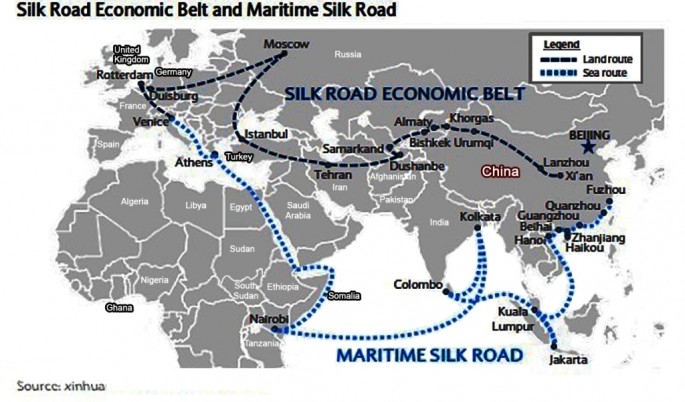In hopes to help implement "One Belt, One Road" initiatives, the Supreme Court gave advice on offering judicial service on Tuesday.
The SC’s service includes strengthening cooperation with the countries involved to crack down on terrorism and transnational crimes.
"Local people's courts at different levels should play their role in dealing with criminal trials and strengthen cooperation with the courts of the countries along 'One Belt, One Road' to severely crack down on terrorism, ethnic separatism, religious extremism and transnational crimes," said the Supreme Court in a statement released on Tuesday.
As a recall, the "One Belt, One Road" initiative was first put forward by Chinese President Xi Jinping in Oct. 2013.
The development strategy concentrates on connecting nations along the land-based "Silk Road Economic Belt," including Russia, Mongolia, Pakistan, Iran and countries along the ocean-going "Maritime Silk Road," consisting of India and Singapore.
The Supreme Court further requested local courts to intensify judicial reforms to help foreigners to take part in trials.
“Since there is no specific regulation on giving permission to foreigners to attend a court trial in China, few of them were allowed to do so and protecting their rights will ensure the openness and fairness of our judicial system,” said Luo Dongchuan, a chief judge with the Supreme Court, in Tuesday's conference in Beijing.
The Supreme Court also called on local courts at all levels to amend bilateral and multilateral agreements with the countries in the "One Belt, One Road" for acknowledgment and enforcement of judicial judgments.
China could give judicial support to immigrants whose country does not have an accord with China to create a beneficial relationship before they further extend judicial cooperation.



























